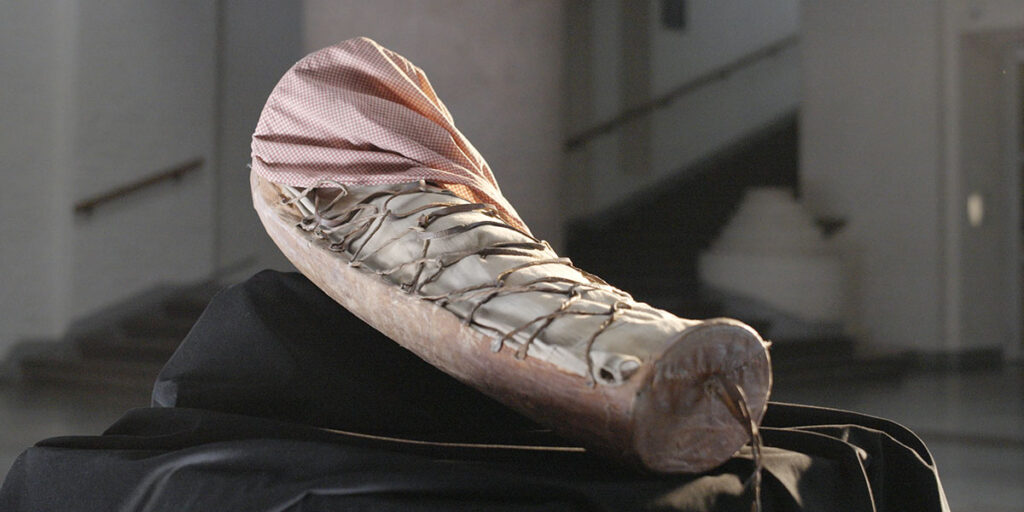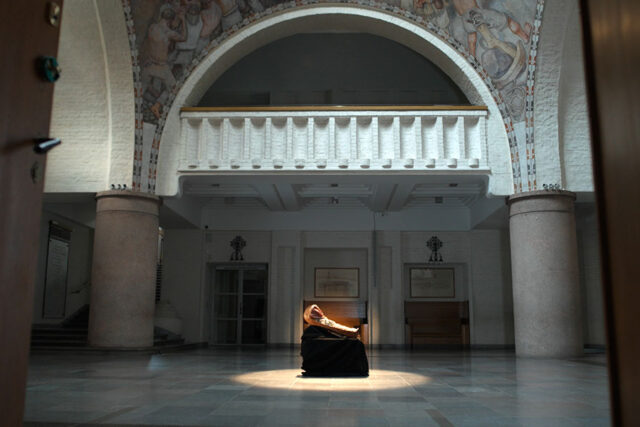Toronto International Film Festival | 2023
Many of the world’s international film festivals are the launching pads for some of the globe’s most celebrated titles. Films which will go on to win Academy Awards. There are also films which often do not find commercial distribution but have in many ways far more important stories to tell. Two such films were screened at this year’s Toronto International Film Festival: Homecoming by Suvi West and Anssi Kömi (Norway/Finland) and A Road to a Village directed by Nabin Subba (Nepal). Taken together they present a unique perspective of little-known worlds. A perspective, which will make viewers lives far richer for seeing them.
Homecoming (Máhccan) | A Sami documentary
The Sami feature, Homecoming (Máhccan) tells the story of the repatriation of Denmark’s entire collection of Sami artefacts to representatives of the Sami community. It’s particularly chilling to note that these artefacts also include human remains. These objects are destined for a museum which is being opened to celebrate Sami culture, one of the first to do so anywhere in the world. The emotional journey this film takes you on is completely unexpected since you feel the impact these artefacts return has had on the Sami people. We see both artworks finally displayed along with Sami human remains belatedly given a proper burial. Suvi makes it clear in her narration that these artefacts hold both spiritual and historic importance for the Sami community. A community, which inhabits regions in Norway, Sweden, Finland and the Kola region in Russia today. Formerly known as Lapland, the Sami people themselves were previously called Laplanders. But the term is seen to be deeply offensive, and they have now changed their name to reflect the language they speak, Sami. Many of the artefacts were taken at a time when a persecution of the community was in full sway. A persecution initiated mainly because the Sami were not viewed as being wholly human. An astonishing thought now but one, which was very prevalent in northern Europe at the time.

Homecoming focuses mainly on co-director Suvi West’s personal journey. West and Kömi particularly makes clear that their interest is not purely academic. It is based on a deep emotional connection with the pieces they film, since some of the objects that are returned come from their own native region and West thinks that some of the objects returned actually belonged to members of her own family. She also journeys to a museum in Norway to commemorate the murder of ninety-one Sami people. They were killed simply because of their ethnicity. The persecution of the Sami intensified during Europe’s own religious wars. The community was willing to incorporate Christianity but on their own terms. This was something the church at the time would not allow so persecution and murder swiftly followed.
One of the most significant artefacts sought by the Sami people are their sacred drums, drums which they believe could control the future. Because of their perceived power, Sami drums were confiscated and destroyed throughout Europe. With the community now only having in their possession four of the seventy-one Sami drums still in existence. When Suvi witnesses the return of one, she is careful not to allow the cameraman to film it, since she feels doing so would be a desecration of the object. The most disturbing part of the documentary is one, which addresses the number of human remains estimated to be in collections in museums around the world. Museums, which are still, even now reluctant to return them. Suvi makes clear in this film that these are the “artefacts” the community most want handed back.


